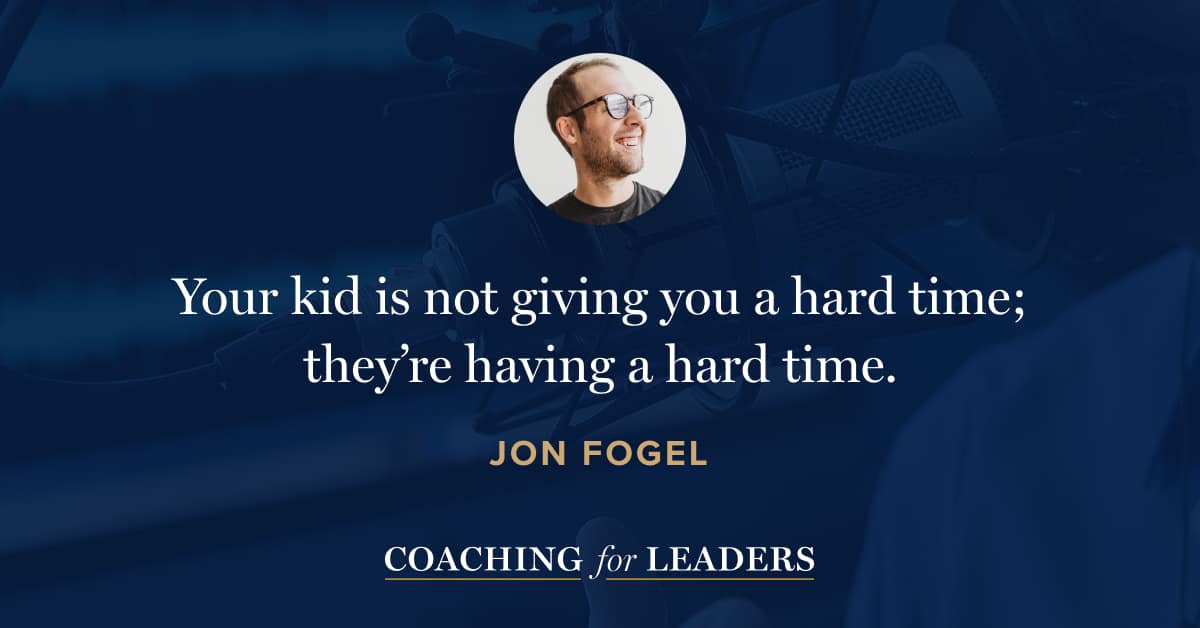Jon Fogel: Punishment-Free Parenting
Jon Fogel is a husband, a father of four, and a parenting educator. His goal is to teach how to parent more effectively, with less stress and more success by combining modern neuroscience, developmental psychology, counseling, and positive, gentle parenting wisdom. He is the author of Punishment-Free Parenting: The Brain-Based Way to Raise Kids Without Raising Your Voice*.
Most of us aspire to lead well in every area of our lives, not just in the workplace. A key place for leadership with many of us is with our kids and the other young people in our lives. In this conversation, Jon and I discuss how to raise kids without raising your voice.
Key Points
- Consequences and punishment are not the same thing, even if the words are used interchangeably.
- Our kids want us to like them. They are not giving you a hard time; they’re having a hard time.
- Punishment doesn’t “teach kids a lesson.” More often, it crowds out higher-level thinking, and children are unable to remember what they were being punished for.
- Rather than imposing retribution, help children surface the natural and logistical consequences of their behaviors.
- Get curious, not furious. Often, there’s a perfectly rational reason that children are acting the way they are.
- Children are great imitators. So give them something great to imitate.
Resources Mentioned
- Punishment-Free Parenting: The Brain-Based Way to Raise Kids Without Raising Your Voice* by Jon Fogel
- Jon Fogel on Instagram
Interview Notes
Download my interview notes in PDF format (free membership required).
Related Episodes
- How to Reduce Drama With Kids, with Tina Payne Bryson (episode 310)
- The Way Into Better Conversations About Wealth, with Kristin Keffeler (episode 606)
- Supporting Return to Work After Maternity Leave, with Danna Greenberg (episode 639)
Discover More
Activate your free membership for full access to the entire library of interviews since 2011, searchable by topic. To accelerate your learning, uncover more inside Coaching for Leaders Plus.





